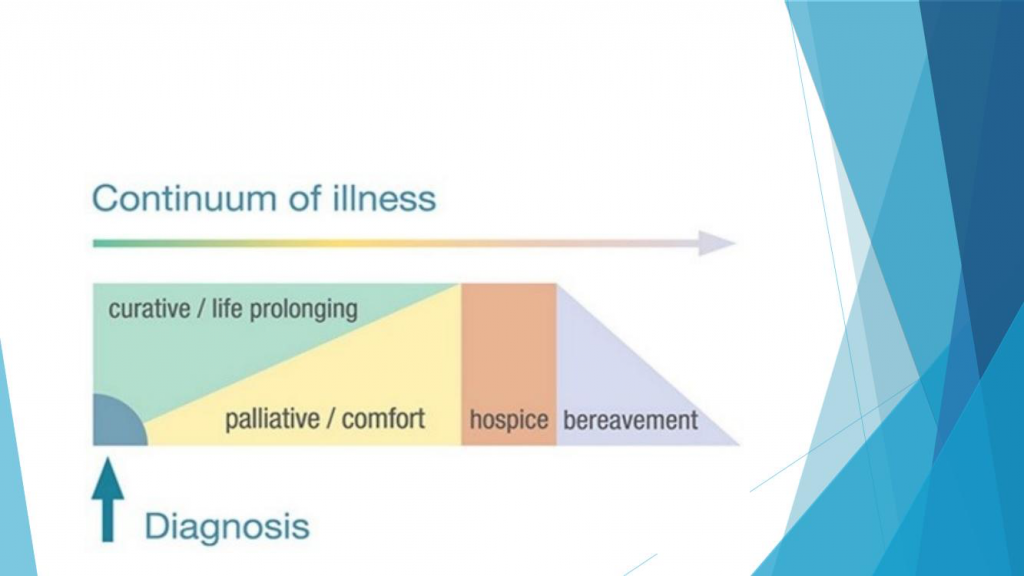Palliative Care
Palliative care (pronounced pal-lee-uh-tiv) is specialized medical care for people living with a serious illness. This type of care is focused on relief from the symptoms and stress of a serious illness. The goal is to improve quality of life for both the patient and the family.
Palliative care is provided by a specially-trained team of doctors, nurses and other specialists who work together with a patient’s other doctors to provide an extra layer of support. It is appropriate at any age and at any stage in a serious illness, and it can be provided along with curative treatment. (from the website getpalliativecare.org)
Palliative care is distinguished from hospice care (see section 4 on Hospice Care. Palliative care includes curative treatment while experiencing symptom management. The care includes comfort measures from an interdisciplinary team approach. It is important to access palliative care EARLY when a serious illness or chronic condition is diagnosed. This can help with creating goals of care over time (advance care planning) rather than in crisis mode. The following diagram shows the trajectory of illness. Palliative care focuses on aligning your values and goals of care with your specific individualized treatment plan.
Palliative care is an approach that improves the quality of life of patients and their families facing the problems associated with life-threatening illness, through the prevention and relief of suffering by means of early identification and impeccable assessment and treatment of pain and other problems, physical, psychosocial and spiritual. Palliative care:
- Provides relief from pain and other distressing symptoms;
- Affirms life and regards dying as a normal process;
- Intends neither to hasten nor postpone death;
- Integrates the psychological and spiritual aspects of patient care;
- Offers a support system to help patients live as actively as possible until death;
- Offers a support system to help the family cope during the patient’s illness and in their own bereavement;
- Uses a team approach to address the needs of patients and their families including bereavement counseling, if indicated;
- Will enhance quality of life, and may also positively influence the course of illness; is applicable early in the course of illness, in conjunction with other therapies that are intended to prolong life, such as chemotherapy or radiation therapy, and includes those investigations needed to better understand and manage distressing clinical complications
(definition from the World Health Organization)


